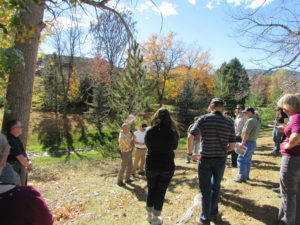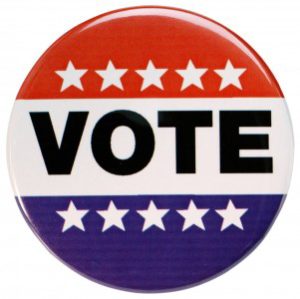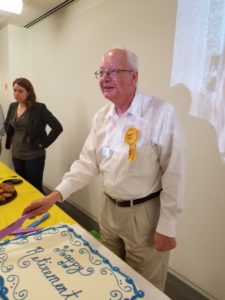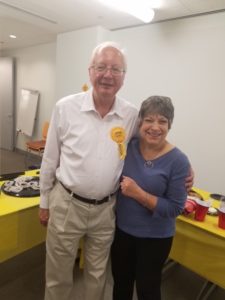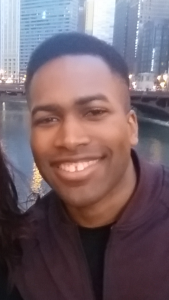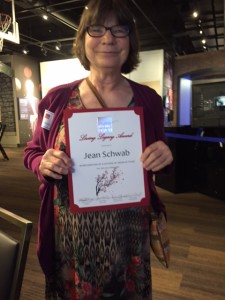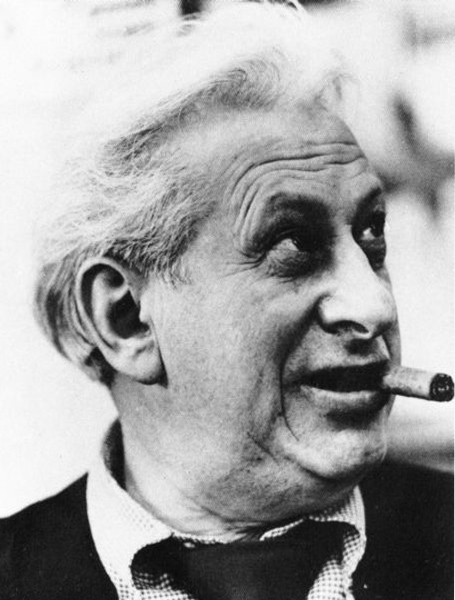Last night, I read one of those publisher columns that are often boring and laborious, but this one nailed it. Mother Jones CEO Monika Bauerlein recounted a conversation with a veteran editor she admires who inquired about the partisan bias he perceived in the monthly magazine. Unquestionably, the magazine is known for a left-wing tilt, but it should be better known for its investigative reporting and willingness to ask hard questions. Over the years, after all, Mother Jones has not gone out of its way to spare Democrats, but it certainly is riding herd on President Donald Trump.
And for good reason, although Trump is a symptom of a problem and not its origin. He is exploiting deep divisions and tribal instincts in a nation that seems unsure what it wants, but much of which is troubled by the extent of the deception, corruption, and amorality of the current administration. Bauerlein insists that the media can “stand for something” while remaining fair and accurate in its reporting, and I agree. She also notes that trying to report from the middle while merely relaying contrasting statements from “both sides” of the political spectrum is really reporting from nowhere because it lacks a moral anchor. There are multiple reasons for asking tough questions and engaging in investigative reporting, but two stand out: 1) Public officials often, but not always, cut corners, lie, or shade the truth to advance their own ambitions or protect the tribe; and 2) such questions are the ingredients of serious analysis that gets to the bottom of a problem and advances the quality of our national dialogue. Surely, the latter has been hitting new lows in recent years.
So, my title for this post does not mean that I always agree with everything I find in Mother Jones, nor does it mean that the magazine expects that all its readers will do so all the time. The real point is to advance the quality of the dialogue. And in that respect, I think publications like Mother Jones are essential to the survival of American democracy.
The subject of the purpose of the news media has always intrigued me, in part because, in addition to my M.A. in urban and regional planning from the University of Iowa, I also earned a second M.A. in journalism, way back in 1985. I recall a class conversation with one local newspaper editor. He clearly adhered to a school of thought that held that reporters need to be objectively neutral at all times. When someone asked him about news coverage of third parties, he noted that they got little coverage because they had such limited followings, so the focus was on the “two sides”—the Republicans and Democrats. When that person followed up by asking how third parties would ever get a hearing if all the news media followed that logic, he had no good answer. What we heard was mostly pre-Internet circular logic. We will cover such movements when they matter, and they won’t matter until we cover them. The shallowness of the paradigm of “two sides” immediately struck me: The media seeing itself as impartial mediator was an inadequate framework for finding the truth, which is not always or necessarily located in the middle. (Anyone still believe in slavery?) As Bauerlein observes, the middle moves, depending on how the two sides are defined. It matters whether the right is John  McCain or Steve Bannon, whether the left is Nancy Pelosi or the Socialist Workers Party. And no, they are not the same. Where was the middle in Hitler’s Germany? Where was the middle in the segregated, Jim Crow South? Where is the middle when voter rights are being suppressed, so that some less privileged citizens are denied a voice through the ballot box? Whose voice matters (or should)?
McCain or Steve Bannon, whether the left is Nancy Pelosi or the Socialist Workers Party. And no, they are not the same. Where was the middle in Hitler’s Germany? Where was the middle in the segregated, Jim Crow South? Where is the middle when voter rights are being suppressed, so that some less privileged citizens are denied a voice through the ballot box? Whose voice matters (or should)?
Ultimately, it is not partisan to insist on accuracy, truth, human decency, and honesty. It is simply good for democracy and good for society. It is not helpful, on the other hand, simply to accept undocumented Twitter-fed nonsense from a President, a Congressman, or any other public figure without subjecting it to some standards of accuracy, which is why the Washington Post has maintained its inventory of more than 5,000 false or misleading statements by Trump since he took office. It may not be feasible for the Post alone to maintain such an inventory for everyone in a prominent political position, but he is the President, after all, and there are other Internet platforms for tracking political honesty among lower candidates and office holders of all parties at the federal, state, and local levels. These are not partisan sites, for the most part, but they are important tools for voters and activists who want to assess the accuracy of what they hear and read.
One reason I chose to react to Bauerlein’s comments is that they also touched upon much of my own philosophy regarding this blog. When I launched “Home of the Brave” in April 2013, I had no idea who would be reading it, or how many, but now there are nearly 19,000 subscribers, and probably some smaller number of regular visitors who have not yet chosen to register a subscription. I get virtually nothing out of the enterprise except the deep satisfaction of sharing knowledge and perspectives, but being a veteran planning professional as well as a trained journalist, the quality and reputation of what I publish is central to my identity. I also recognize special responsibilities once a readership grows to that size. While I certainly have a point of view on numerous topics, I have sought to emphasize research and analysis over advocacy. Indeed, given my penchant for taking readers deep into the subject matter in my own areas of expertise, while insistently using plain English, I have been pleasantly surprised at how many people have chosen to read this blog on a regular basis. I would rather slake a popular appetite for truth than simply express opinions. If I get something wrong, and someone can prove it, I want to hear from them. To that end, my reading diet is aggressive, and I try to share what I learn when I think I have discovered something that matters. I am always open to recommendations regarding new books and research reports. All the best journalists I have ever known have been equally ravenous readers. It is their best defense against “fake news.” They are not only not the enemy of the people; they are vital resources for a thoughtful public.
If only we could retrain more of America to step outside its current groupthink and exercise their mental muscles to question, not just react, to be open to new information, and to value independent thought, we might get past our current bumper-sticker debates and engage in some serious, rational conversation. And we might learn to show more mutual respect for what we all have to offer.
Jim Schwab

